The 2025-2026 PHPC Leadership Institute application period is now open!


Year: 2025 | Competency/Strategic Skill: Problem Solving; Program Planning; Resource Management and Financial Planning | Priority Topic: NA | Setting: Online | Format: On-Demand | Sponsor: Emory University/Central Office
Overview:
This is a 90-minute recording of a live webinar on May 6, 2025.
In this presentation, you will learn about the aftermath of Hurricane Helene and its impact on Tennessee. We will highlight public health and medical response efforts, including critical deployable equipment and strike teams utilized during the disaster. Additionally, we will explore pharmacy-related planning and response topics addressed throughout the event. This session will also cover successes and lessons learned from the response, providing valuable insights to inform strategies for mitigating the impact of future disasters.
Paul E. Petersen, PharmD, MPH, CEM, is the Director of the Tennessee Department of Health’s Emergency Preparedness Program. Dr. Petersen leads Tennessee’s response to all public health and medical emergencies. Tennessee has experienced a wide range of threats and public health emergencies requiring decisive action by program staff, health care coalitions, and other response partners. During the COVID-19 pandemic, he also served as the interim Director for the Vaccine-Preventable Disease and Immunization Program.
Originally from California, he earned his Doctor of Pharmacy degree at the University of the Pacific Thomas L. Long School of Pharmacy and Health Sciences in 2001. Dr. Petersen completed his PGYI Pharmacy Practice Residency at Saint Thomas Hospital in Nashville, where he also served as the Clinical Operating Room Pharmacist prior to his move to state government in 2005. He completed his Master of Public Health degree at East Tennessee State University in 2022. He serves on various national preparedness policy committees, including work with the National Academies, National Emergency Management Association, and the Association of State and Territorial Health Officials. He is also an active member of several professional public health and pharmacy associations, including the 2025 President of the Nashville Area Pharmacists Association.
Learning Objectives: By the end of this webinar, participants will be able to:
CERTIFICATE: The course contains two modules: a module to access the webinar and an evaluation module. After accessing the two modules, learners will earn a certificate of completion. When the certificate is available, learners will see a Certificate button on their dashboard.
This project is supported by the Health Resources and Services Administration (HRSA) of the U.S. Department of Health and Human Services (HHS) under grant number UB6HP31680, Public Health Training Centers for $4,348,992. This information or content and conclusions are those of the author and should not be construed as the official position or policy of, nor should any endorsements be inferred by HRSA, HHS or the U.S. Government.


Year: 2024 | Competency/Strategic Skill: Policy Development; Program Planning | Priority Topic: N/A | Setting: Online | Format: On-Demand | Sponsor: Emory University/Central Office
Overview:
This is a recording of a 90-minute webinar held on June 26, 2024.
Health in All Policies (HiAP) is a proven tool that agencies and organizations can use as they work to embed health considerations into decisions, policies, and programs to address the most upstream determinants of health and advance health equity. In this webinar, NACCHO will provide an introduction to HiAP and the resources available, and Franklin County Public Health, OH, will give an overview of how they implemented HiAP in their jurisdiction.
Daan Wind, MPH, is a Program Analyst Public Health Law and Policy at the National Association of County and City Health Officials (NACCHO). He specializes in public health policy and promotes the implementation of Health in All Policies at local health departments around the United States. Daan has a Master of Public Health and previously worked in various health policy roles in his home country of the Netherlands.
Jennie McAdams, MPH, REHS, is the Sustainability Section Supervisor at Franklin County Public Health, a section created in 2019, that includes climate change efforts, lead and healthy homes programs and the solid and infectious waste team. She also serves on NEHAs Climate Change Workgroup as well as various local committees addressing climate change and sustainability. She leads internal and external climate efforts and works to create cross-sector partnerships.
Learning Objectives: By the end of this webinar, participants will be able to:
CERTIFICATE: The course contains two modules: a module to access the webinar and an evaluation module. After accessing both modules, learners will earn a certificate of completion.
This project is supported by the Health Resources and Services Administration (HRSA) of the U.S. Department of Health and Human Services (HHS) under grant number UB6HP31680, Public Health Training Centers for $4,348,992. This information or content and conclusions are those of the author and should not be construed as the official position or policy of, nor should any endorsements be inferred by HRSA, HHS or the U.S. Government.


Year: 2024| Competency/Strategic Skill: Program Planning; Community and Partner Engagement | Priority Topic: Childhood Obesity | Setting: Online | Format: On-Demand | Sponsor: Emory University/Central Office
Overview:
This is a recording of a webinar on March 22, 2024.
Poor nutrition is associated with early disease and death in the United States due to the increased risk for diseases such as obesity, diabetes, and heart disease. While poor nutrition can affect anyone, not all Americans have consistent and equitable access to healthy, safe, and affordable food. This talk will cover evidence-based nutrition interventions that are part of state and community efforts to improve nutrition security. The webinar will touch on nutrition standards within early care and education (childcare), food banks and pantries, as well as food service guidelines that can be used in parks and recreation, worksites, hospitals, and other community settings. The webinar will also discuss community fruit and vegetable programs, including voucher incentives and Produce Prescription programs to help individuals become more food secure and help support chronic disease self-management. CDC’s web resources, such as Data, Trends, Maps, and its State and Community Media Center, which hosts nutrition content for reaching consumer audiences, will be provided.
Heidi Michels Blanck, Ph.D., (Retired, Captain USPHS), Branch Chief, Obesity Prevention and Control, Division of Nutrition, Physical Activity and Obesity, National Center for Chronic Disease Prevention and Health Promotion, Centers for Disease Control and Prevention (CDC).
Dr. Blanck serves as CDC’s Chief of Community Nutrition and Obesity Prevention and Control. In this capacity, she supports teams working on national and state nutrition and obesity surveillance, applied research, and technical assistance to state and local partners to improve health and nutrition security through early childcare and education (ECE) programs, nutrition standards, fruit and vegetable community programs, and family healthy weight programs to support healthy child growth. Dr. Blanck also supports research-practitioner partnerships, including the Nutrition and Obesity Policy Research and Evaluation Network (NOPREN) and the National Collaborative for Childhood Obesity Research (NCCOR). Dr. Blanck received her Ph.D. in Nutrition and Health Science from Emory University and her M.S. in Molecular Biology from the University of Michigan.
Learning Objectives: By the end of this webinar, participants will be able to:
CERTIFICATE: The course contains two modules: a module to access the webinar and an evaluation module. After accessing both modules, learners will earn a certificate of completion.
This project is supported by the Health Resources and Services Administration (HRSA) of the U.S. Department of Health and Human Services (HHS) under grant number UB6HP31680, Public Health Training Centers for $4,348,992. This information or content and conclusions are those of the author and should not be construed as the official position or policy of, nor should any endorsements be inferred by HRSA, HHS or the U.S. Government.


Year: 2023 | Competency/Strategic Skill: Program Planning | Priority Topic: Physical Activity | Setting: Online | Format: On-Demand | Sponsor: Emory University/Central Office
Overview:
This is a 90-minute recording of a live webinar held on February 17, 2023.
The U.S. Department of Health and Human Services (HHS) Office of Disease Prevention and Health Promotion (ODPHP) developed the Move Your Way® campaign in 2018 to share key recommendations from the second edition of the Physical Activity Guidelines for Americans. The campaign aims to increase awareness and knowledge of the guidelines, physical activity self-efficacy, and ultimately change behavior. It includes over 80 free resources, such as posters, fact sheets, and videos, that are available in English and Spanish and tested with diverse audiences. This webinar will provide an overview of the campaign, highlight how community pilots from health departments in Cabarrus County, North Carolina, and Jackson, Mississippi successfully implemented Move Your Way®, and describe strategies for how public health professionals and organizations can leverage the campaign to promote physical activity in their communities.
Joshua Chigozie Ogbuefi, MPH, is a Health Communications Fellow at the Office of Disease Prevention and Health Promotion (ODPHP) within the U.S. Department of Health and Human Services. His primary role is project support for the Move Your Way® campaign, which is the communications campaign for the Physical Activity Guidelines for Americans. His other projects at ODPHP include supporting the ODPHP Healthy Equity Workgroup as a communications subject matter expert and project manager for the ODPHP social media team. Prior to his current role, Joshua interned at the CDC Division of Nutrition, Physical, Activity, and Obesity, Physical Activity and Health Branch supporting the branch’s health equity work. Joshua holds a Master of Public Health in Health Promotion and Behavior from the University of Georgia and a Bachelor of Science in Public Health from The Ohio State University.
Katie Costello, MPH, is a Health Communications Fellow at the Office of Disease Prevention and Health Promotion (ODPHP) within the U.S. Department of Health and Human Services. Her primary role is project support for the Move Your Way® campaign, which is the communications campaign for the Physical Activity Guidelines for Americans. Her portfolio also includes supporting the promotion of ODPHP’s Healthy People 2030 and Healthy Aging initiatives. Prior to her current role, Katie served as an intern at the Society for Public Health Education where she contributed to the organization’s cooperative agreement with CDC Healthy Schools. Katie holds a Master of Public Health degree in Physical Activity and a Bachelor of Science in Kinesiology from the University of Maryland, College Park.
Laura Steele oversees BikeWalkKC’s education team and works to ensure program sustainability through cultivating strong relationships with numerous community organizations, school districts, public health-focused workgroups and others across the Kansas City Metro. She is involved with the Women Bike KC initiative and coordinates the KC Women’s Bike Summit and the Greater KC Safe Routes to School Summit. Laura is Licensed Cycling Instructor, 2017 alumni of the Healthy Communities Leadership Academy, frequent bike commuter, and a graduate of the University of Missouri-Columbia. She was elected as a Council Member for the City of Westwood in 2019 and resides with her family of cyclists in Westwood, KS.
CERTIFICATE: The course contains two modules: a module to access the webinar and an evaluation module. After accessing both modules, learners will earn a certificate of completion. When the certificate is available, learners will see a Certificate button on their dashboard.


Year: 2021 | Competency/Strategic Skill: Program Planning | Priority Topic: Mental Health | Setting: Online | Format: On-Demand | Sponsor: Emory University/Central Office
Overview:
This is a 60-minute recording of a live webinar held on May 19, 2021. This webinar is co-sponsored by the Mental Health Technology Transfer Center at Emory University.
The recent pandemic has created a confluence of uncertainty, social isolation, and disruptions in services and supports important to children. The nature and extent of the mental health impact on this age group depends on pre-existing vulnerabilities, contextual issues related to their COVID experiences, and the effectiveness of response efforts. In this interactive, virtual webinar, risks and protective factors will be identified, and effective strategies for promoting recovery from pandemic related distress will be explored using a developmental lens, and a social-ecological framework. Whenever possible, child and parent narratives will be used to illustrate concepts.


Year: 2021 | Competency/Strategic Skill: Program Planning | Priority Topic: Opioid Abuse | Setting: Online | Format: On-Demand | Sponsor: Emory University/Central Office
Overview:
This is a 90-minute recording of a live webinar held on April 28, 2021. This webinar is co-sponsored by the Injury Prevention Research Center at Emory.
The epidemic of opioid use and related harms has been exacerbated by the ongoing COVID-19 pandemic. Mitigation strategies for COVID-19 have led to disruption in the delivery of healthcare, increased social isolation, and rapid release of individuals from jails and prisons- all of which may increase the risk of overdose. Gaps in the continuum of care including access to mortality-reducing medication treatment for opioid use disorder have become more evident. In response, the federal government has made significant changes intended to provide more flexibility in how and where care is delivered for both methadone and buprenorphine treatment. Providers have welcomed these changes, and we will discuss several of these practice changes including how to utilize telemedicine and new long-acting injectable formulations to initiate and help retain patients in care.


Year: 2022 | Competency/Strategic Skill: Program Planning| Priority Topic: N/A | Setting: Online | Format: On-Demand | Sponsor: Emory University/Central Office
Overview:
These are recordings of our 5-session series of 90-minute interactive online workshops offered every other week starting March 10, 2022 and ending May 5, 2022. All sessions were from 1–2:30 pm ET. Learners may choose to register for all workshops in the series or for individual sessions.
Dynamic Education And Learning (DEAL) is designed for public health professionals who want to elevate the quality of the distance-based trainings they develop and deliver. The series covers training planning, promotion, implementation and evaluation. Although much of the content is developed with distance-based training in mind, many concepts can also be applied in in-person trainings as well. Learners can register for any or all of the five sessions.
Session 1 Best Practices for Developing Quality Distance-based Training covers key terminology, e-learning standards, best practices and unique considerations for engaging in the distance-learning environment.
Session 2 Developing a Strong Foundation for Your Training covers how to define and learn about a target audience, develop learning objectives, create appealing titles and descriptions, and ways to promote training offerings.
Session 3 Introduction to Technology for Teaching and Assessment covers technology tools and the selection of appropriate strategies and technologies for teaching and assessment.
Session 4 How to Create Engaging Webinars and Interactive Slideshows covers webinars and interactive slideshows, and discusses the value of interaction in adult learning and how technology can be used to engage learners.
Session 5 Developing Training Evaluations covers methods of evaluation, Kirkpatrick’s levels of evaluation, effective survey questions, and strategies of data collection.


Year: 2021 | Competency/Strategic Skill: Program Planning | Priority Topic: Mental Health | Setting: Online | Format: On-Demand | Sponsor: Emory University/Central Office
Overview:
This is a 90-minute recording of a webinar held on January 11, 2021.
Child sexual abuse prevention starts with knowledge and awareness of the problem. This webinar provides professionals who work with children and families with an overview of the issue as well as tools and strategies to create safer environments for children in both a professional and personal setting. The webinar will cover practical actions adults can take to reduce instances of child sexual abuse in their organizations, families, and communities, and will give participants information about evidence-informed training programs available to deepen knowledge and enhance skill building to prepare adults to speak up and prevent sex abuse.


Year: 2020 | Competency/Strategic Skill: Program Planning | Priority Topic: N/A | Setting: Online | Format: On-Demand | Sponsor: University of North Carolina, Wilmington
Overview:
This is a 90-minute recording of a live webinar. It is the first in a series of two webinars on Value Based Care.
Understand what value-based care is and why there is a value-based care movement. Explore the nationally accepted principles of value-based care. Learn about the philosophy and framework of the HCP-LAN Alternative Payment Model and review the current state of VBC initiatives.
Presented by Michaelle Gady, JD, President and CEO of Atromitos, LLC, Peter Freeman, Senior Consultant at Atromitos, and Sarah Jagger, Vice President of Operations at Atromitos.


Year: 2020 | Competency/Strategic Skill: Program Planning | Priority Topic: N/A | Setting: Online | Format: On-Demand | Sponsor: University of North Carolina, Wilmington
Overview:
This is a 90-minute recording of a live webinar. It is the second in a series of two webinars about Value Based Care.
Value Based Care 201 will be presented by Michaelle Gady, JD, President & CEO of Atromitos, LLC, Peter Freeman, Senior Consultant at Atromitos, and Sarah Jagger, Vice President of Operations at Atromitos. A one hour presentation will be followed by 30-minutes of Q&A.


Year: 2020 | Competency/Strategic Skill: Program Planning | Priority Topic: Other Infectious Disease | Setting: Online | Format: On-Demand | Sponsor: Emory University/Central Office
Overview:
This is a one-hour recording of a live webinar held on July 28, 2020.
This webinar is co-sponsored by the Alabama Fire College Workplace Safety Training Program and the Deep South Biosafety Worker Training Program.
The webinar will discuss COVID-19 in pediatric patients specifically focusing on their pre-hospital management with a target audience of first responders. We will review the epidemiology of COVID-19 in pediatrics, assessment and management of pediatric patients with suspected or confirmed COVID-19, prehospital management of pediatric respiratory emergencies and patients with COVID-19, discuss the emerging illness known at MIS-C, and review prehospital cases of pediatric patients with COVID-19.
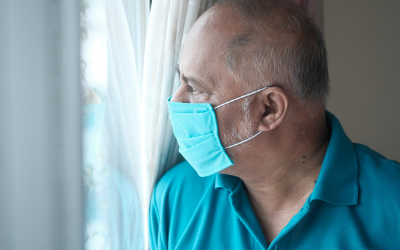

Year: 2020 | Competency/Strategic Skill: Program Planning | Priority Topic: Other Infectious Disease | Setting: Online | Format: On-Demand | Sponsor: Alabama Public Health Training Network
Overview:
This is a series of 90-minute webcasts.
Self Care in Challenging Times: Care for the Caregiver in the Age of COVID-19, broadcast on July 22, 2020
Intersection of Stigma and Fear: Living with HIV in the Age of COVID-19, broadcast on July 8, 2020
Addressing the Needs of Consumers with Substance Use Disorder (SUD) in the Age of COVID-19, broadcast on June 24, 2020
Addressing the Needs of Older Adults in the Age of COVID-19, broadcast on June 10, 2020
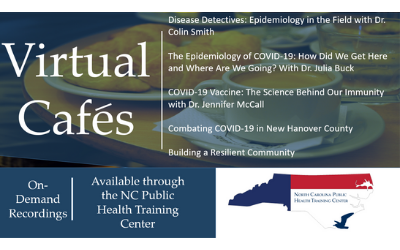

Year: 2020 | Competency/Strategic Skill: Program Planning | Priority Topic: Other Infectious Disease | Setting: Online | Format: On-Demand | Sponsor: University of North Carolina at Wilmington
Overview:
This is a series of 45- to 60-minute on-demand recordings including:
Building a Resilient Community: J’vanete Skiba of the Resiliency Task Force of New Hanover County discusses resiliency. What is it and why is it important? Learn more about the task force and its efforts to reduce stress and work together during this time of crisis.
Disease Detectives: Dr. Colin Smith, social epidemiologist, demographer and past-president of the Georgia Public Health Association, describes just what social epidemiology is. How do social-structural factors impact patterns of disease and health? Learn how concepts such as social inequality, social relationships and basic epidemiology help us understand distribution of disease. Understand the potential outcomes for COVID-19 social distancing measures and testing policies.
The Epidemiology of COVID-19: Dr. Julia Buck explains the math – yes math – behind the COVID-19 pandemic. Using basic epidemiological models, estimate what proportion of humanity will need to be immune to COVID-19 before the outbreak ends. Hear public health strategies to get us there as safely as possible. Dr. Buck’s interests include disease ecology, parasitology, and mathematical modeling, and she teaches a course on the Ecology of Infectious Diseases in the Biology Department.
COVID-19 Vaccine: Jennifer McCall, PhD, MBA, assistant professor of clinical research, talks about vaccine development, what it would take to develop a COVID19 vaccination, how our immunity works, and more! Dr. McCall’s interests include drug discovery, immunology, and the business of biotechnology.
Combating COVID-19 in New Hanover County: Carla Turner, New Hanover County’s Personal Health Services Manager, outlines the county’s public health efforts to respond to COVID-19.


Year: 2020 | Competency/Strategic Skill: Program Planning | Priority Topic: N/A | Setting: Online | Format: On-Demand | Sponsor: Emory University/Central Office
Overview:
This is a 90-minute recording of a webinar. This webinar is co-sponsored by the Injury Prevention Center at Emory.
In this presentation we’ll discuss the nature and dynamics of sex and labor trafficking, and the health impact on adults and children. We’ll review possible indicators of trafficking that may be present under varied conditions, and discuss screening tools that may be helpful in identifying persons at risk of exploitation. We’ll talk about the trauma-informed, rights-based approach to interacting with trafficked persons, and review resources available to those in need. Finally, we’ll discuss how the COVID pandemic is expected to impact the dynamics of human trafficking, and exacerbate existing risk factors for exploitation.


Year: 2020 | Competency/Strategic Skill: Program Planning | Priority Topic: Mental Health | Setting: Online | Format: Live | Sponsor: Emory University/Central Office
Overview:
This is a 90-minute recording of a live webinar.
This webinar is being co-sponsored with the Injury Prevention Research Center at Emory.
Description: Youth suicide in the United States is on the rise and suicide is a leading cause of death for this population. Youth suicide is a public health challenge and requires a comprehensive approach to address its multiple risk and protective factors. Strategies with the best available evidence to prevent suicide range from strengthening economic supports of families, to reducing access to lethal means among people at risk, to promoting connectedness, teaching coping and problem-solving skills, and identifying and supporting people at risk.


Year: 2020 | Competency/Strategic Skill: Program Planning | Priority Topic: Childhood Obesity | Setting: Online | Format: On-Demand | Sponsor: Emory University/Central Office
Overview:
This is a 90-minute recording of a live webinar.
Pediatric obesity has continued to challenge our clinics and communities for effective and supportive approaches to improve health and treatment of disease. We will refine the clinical assessment of the severity of the disease of obesity and its complications as well as discuss treatments appropriate for the different classes of obesity. Then we will explore community efforts to promote health, prevent obesity, and support those working to lose weight.

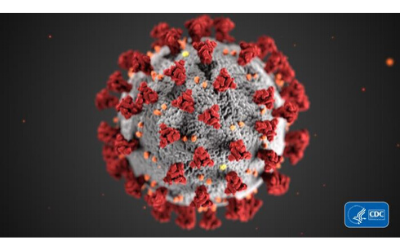
Year: 2020 | Competency/Strategic Skill: Program Planning | Priority Topic: Other Infectious Disease | Setting: Online | Format: On-Demand | Sponsor: Emory University/Central Office
Overview:
This is a recording of a 90-minute webinar held on March 2, 2020.
The reach of the novel Coronavirus Disease (COVID-19) outbreak continues to expand beyond where it was first detected in China. As of January 30, 2020, the WHO declared the outbreak a public health emergency of international concern and as of February 24, 2020 there were 14 positive cases reported in the U.S. This webinar will share information on what the COVID-19 is, how it is transmitted and the current distribution of cases. Participants will learn how to identify the symptoms of a COVID-19 infection and how to report a person under investigation. The webinar will conclude with key prevention and protection strategies as well as communication messages for the public.


Year: 2020 | Competency/Strategic Skill: Program Planning | Priority Topic: Opioid Abuse | Setting: Online | Format: On-Demand | Sponsor: Emory University/Central Office
Overview:
This is a 90-minute recording of a live webinar.
This webinar will explore the role of stigma and how it interacts with the disease of addiction. Addiction is a chronic medical condition characterized by relapses and remissions that is often misunderstood, unrecognized and seldom appropriately treated. We shall examine stigma from three perspectives. First at the level of the individual, where the shame and guilt of addiction keeps the person suffering from a substance use disorder from self-identifying as in need of treatment and appropriately accessing resources. Second, at the level of the family and friends, stigma can prevent advocating for their loved ones as well as keeps the patient in the shadows. And finally at the level of the society stigma may lead to failure in effective treatment policy, denial of services, discrimination and marginalization of our patients.

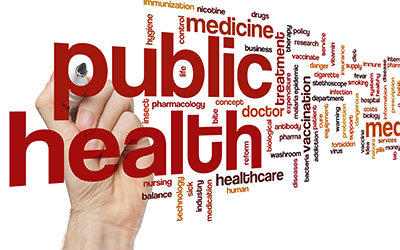
Year: 2015 | Competency/Strategic Skill: Program Planning | Priority Topic: N/A | Setting: Online | Format: On-Demand | Sponsor: Emory University/Central Office
Overview:
This is a series of three 60-minute recordings of live webinars.
The series aims to equip public health practitioners, community leaders, and health educators to implement evidence-based approaches (EBAs) relevant to community practice. Case examples include real-world EBAs from work with our partners in nutrition, physical activity, tobacco control, and cancer screening. The content, timeframe, and case examples can be adapted to specific audience needs and interests.
Part 1: How to Find Health Initiatives that Work
Part 2: Balancing the Evidence with Your Community Needs
Part 3: Implementing and Evaluating with Quality and Fidelity
The following series of three 60 minute webinar sessions (Jan-Feb 2015) aim to equip public health practitioners, community leaders, and health educators to implement evidence-based approaches (EBAs) relevant to community practice. Sessions will be spaced 2-3 weeks apart. Case examples include real-world EBAs from work with our partners in nutrition, physical activity, tobacco control, and cancer screening. The content, timeframe, and case examples can be adapted to specific audience needs and interests.
Strategic criteria for selecting EBAs that fit a community will be presented, including audience characteristics, fit with mission, leadership support, and organizational readiness. We will also define implementation fidelity, steps in program adaptation, and what likely can be changed in an EBA while maintaining fidelity.


Year: 2019 | Competency/Strategic Skill: Program Planning | Priority Topic: N/A | Setting: Online | Format: On-Demand | Sponsor: Emory University/Central Office
Overview:
This is a 90-minute recording of a live webinar.
The purpose of this webinar session is to provide public health professionals and their partners with an initial working knowledge of the Center for Disease Control and Prevention (CDC) capability update initiative for emergency preparedness and response and how it applies in practice. This webinar may be of particular interest to those working in preparedness and response from multiple sectors and roles including state and local governmental public health, academia, health care, communications, responders, and community agencies. The capabilities are national standards that are cross-cutting among public health priority topics to support the full preparedness cycle. The capabilities provide a planning framework, help define roles, offer tools for stakeholder collaboration, suggest consistent terminology, and consider evaluation planning.


Year: 2018 | Competency/Strategic Skill: Program Planning | Priority Topic: N/A | Setting: Online | Format: On-Demand | Sponsor: Emory University/Central Office
Overview:
This is a 90-minute recording of a live webinar.
This webinar is presented in partnership with Georgia Society for Public Health Education (GASOPHE) and the National Association of Chronic Disease Directors (NACDD).
In this webinar, participants will learn how online simulations with virtual humans are being utilized for workforce development and public education to curb chronic disease and improve behavioral health. Learn how these simulations are being used to scale effective strategies for improving and assessing the competencies of the healthcare workforce, engaging other professionals such as educators in prevention and early intervention, and moving the public beyond awareness to action.
The webinar will include (1) an overview of the benefits and research supporting the use of virtual humans, (2) demos of work development and public education about mental health, substance use, and chronic disease, and (3) several use cases of county and statewide implementations including research results.


Year: 2018 | Competency/Strategic Skill: Program Planning | Priority Topic: Other Infectious Diseases | Setting: Online | Format: On-Demand | Sponsor: Emory University/Central Office
Overview:
This is a 90-minute recording of a live webinar.
“There’s no typical flu season,” said Lynnette Brammer to the Washington Post in 2013. Years later, this is certainly still the case. Join this webinar to learn about the current findings about the current influenza epidemic and preparations for the season to come. The Centers for Disease Control and Prevention publishes FluView weekly which provides influenza data to state public health officials, epidemiologists, clinicians and the public. Lynnette Brammer and Kristen Norlund will share surveillance findings, risk communication messages, and ways public health professionals are preparing for the future.


Year: 2018 | Competency/Strategic Skill: Program Planning | Priority Topic: Opioid Abuse | Setting: Online | Format: On-Demand | Sponsor: Emory University/Central Office
Overview:
This is a 90-minute recording of a live webinar.
In order to address the opioid misuse crisis, public health needs examples of prevention strategies at multiple levels from opioid tapering to bio-psycho-social-spiritual approaches to manage chronic pain. This webinar will describe ways to assist in determining if an opioid taper is appropriate for a given patient, in performing the taper, and in incorporating whole health strategies into a new care plan. Additionally, we will discuss the creation process and outcomes of the Empower Veterans Program developed at the Atlanta VA which engages an interdisciplinary team to deliver an integrated, intensive, self-care training program for restoration from chronic pain.


Year: 2017 | Competency/Strategic Skill: Program Planning | Priority Topic: Opioid Abuse | Setting: Online | Format: On-Demand | Sponsor: Emory University/Central Office
Overview:
This is a 90-minute recording of a live webinar.
The webinar will describe the epidemiologies of opioid misuse and associated harms including HIV, hepatitis C (HCV), and overdoses in the US, and will use empirical evidence to describe the pathways linking opioid misuse to these harms. The webinar will end with a review of public health approaches to respond to these epidemics, which include medication assisted treatment, syringe exchange, and overdose prevention interventions.


Year: 2016 | Competency/Strategic Skill: Program Planning | Priority Topic: Other Infectious Diseases | Setting: Online | Format: On-Demand | Sponsor: Emory University/Central Office
Overview:
This is a 90-minute recording of a live webinar.
On March 25, 2016 Beth P. Bell, MD, MPH, Director of CDC’s National Center for Emerging and Zoonotic Infectious Diseases, discussed the latest research findings about the current Zika outbreak and provided an overview of how health officials and health care providers can protect the public’s health from Zika virus infection. Dr. Bell also described prevention messages targeting the public and special groups such as pregnant women and travelers, and she identified credible resources that health officials and health care providers can use to train staff and educate the community about Zika and other mosquito-borne illnesses.
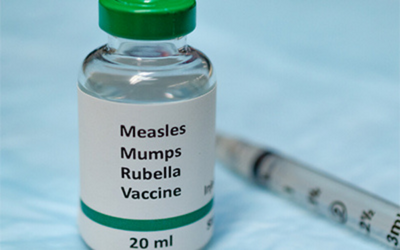

Year: 2019 | Competency/Strategic Skill: Program Planning | Priority Topic: Other Infectious Diseases | Setting: Online | Format: On-Demand | Sponsor: Emory University/Central Office
Overview:
This is a 90-minute recording of a live webinar.
This webinar will describe recent outbreaks of vaccine-preventable diseases, explore trends in national vaccination rates, and discuss challenges in vaccination. The webinar also describes findings from CDC audience research, tips for communicating with parents, and CDC resources for healthcare professional education and parent education.


Year: 2019 | Competency/Strategic Skill: Program Planning | Priority Topic: Childhood Obesity | Setting: Online | Format: On-Demand | Sponsor: Emory University/Central Office
Overview:
This is a 90-minute recording of a live webinar.
Systems thinking, especially with simulation models, facilitates understanding of complex health policy problems. Using a simulation model to educate legislators, public health experts, and education leaders about the policies that have the greatest short- and long-term impact on childhood obesity can encourage strategic investment in low-cost, high-return policies. This webinar will feature the Georgia childhood obesity model created by and for legislators and other stakeholders to support dialogue on policy interventions designed to reduce childhood obesity (specifically, BMI for age percentiles). Participants will have the opportunity to explore the model and understand how policies and evidence-based interventions can impact obesity prevalence and costs over time.


Year: 2019 | Competency/Strategic Skill: Program Planning | Priority Topic: Mental Health | Setting: Online | Format: On-Demand | Sponsor: Emory University/Central Office
Overview:
This is a 90-minute recording of a webinar.
This second webinar will discuss a mental health response to human-created disasters. The phases of response to a human-created disaster will be described as well as the factors that lead to resilience. Case studies on recent human-created disasters will be discussed. It will also discuss the relationship between the mental health and public health sectors and how these two groups work together during a human-created disaster.


Year: 2019 | Competency/Strategic Skill: Program Planning | Priority Topic: Mental Health | Setting: Online | Format: On-Demand | Sponsor: Emory University/Central Office
Overview:
This is a 90-minute recording of a webinar.
This webinar is part one of a two-part series. The first webinar will discuss a mental health response to both natural and human-created disasters. The differences for each type of disaster will be discussed with a focus on natural disasters. Case studies from different natural disasters will be discussed. It will also discuss the relationship between the mental health and public health sectors and how these two groups work together during a natural disaster.


Year: 2019 | Competency/Strategic Skill: Program Planning | Priority Topic: N/A | Setting: Online | Format: On-Demand | Sponsor: Emory University/Central Office
Overview:
This is a 90-minute recording of a webinar.
This webinar presents evidence that religion should be considered among the social determinants of health, based on epidemiological research. Plausible mechanisms at the individual level are the lower smoking rates and greater social ties of those with religious participation. At the community level, faith-based organizations engage in partnerships with public health agencies as a source of social capital to promote health and prevent disease, particularly in hard-to-reach populations.


Year: 2019 | Competency/Strategic Skill: Program Planning | Priority Topic: HIV/AIDS | Setting: Online | Format: On-Demand | Sponsor: Emory University/Central Office
Overview:
This is a 90-minute recording of a webinar.
The federal government is launching an initiative to end the HIV epidemic by 1) increasing the number of US Americans who know their current HIV status, 2) increasing the number of US Americans with HIV infection who are effectively treated and have sustained viral suppression, and 3) rapid expansion and reduced racial/ethnic disparities in PrEP provision to the estimated 1.2 million US American with sexual and injection behaviors that place them as substantial risk of HIV acquisition. This webinar will discuss what PrEP is, indicators for its use and how health departments can support its expansion and effective use.

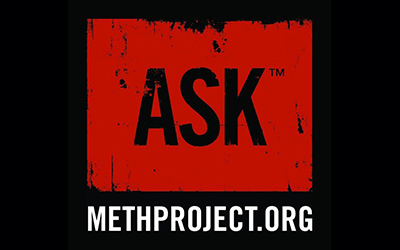
Year: 2011 | Competency/Strategic Skill: Program Planning | Priority Topic: N/A | Setting: Online | Format: On-Demand | Sponsor: Emory University/Central Office
Overview:
This is a 90-minute recording of a live lecture.
The Georgia Meth Project is a large-scale prevention program aimed at reducing Meth use through public service messaging, public policy, and community outreach. Central to the program is a research-based marketing campaign that graphically communicates the risks of Meth use. The Meth Project has been repeatedly cited as a powerful private-sector response to a devastating social problem and was recognized by the White House as one of the nation’s most effective prevention programs. The Georgia Meth Project activities increase awareness of the critical nature of the Meth problem, influencing and escalating public dialogue to find solutions. Coordinating closely with local, state, and federal agencies, the Georgia Meth Project organizes a broad range of community outreach programs that mobilize communities across Georgia to assist in Meth awareness and prevention activities.
This lecture will focus on the current state of methamphetamine use in Georgia, the Meth Project model, strategies and partners, and insights that might be incorporated into contemporary public health practice, training and education.


Year: 2014 | Competency/Strategic Skill: Program Planning | Priority Topic: N/A | Setting: Online | Format: On-Demand | Sponsor: Emory University/Central Office
Overview:
This is a 80-minute recording of a live lecture.
This is the fifth presentation in our 5-part series on Georgia’s health priorities. This presentation will focus on asthma in Georgia.
Dr. Elizabeth Herman, senior scientist with the Air Pollution and Respiratory Health Branch, National Center for Environmental Health at Centers for Disease Control and Prevention, will share the national perspective on the burden of asthma and efforts to reduce that burden as well as opportunities for state programs to expand access to comprehensive asthma control services through health care reform. Dr. Jean O’Connor, Director, Health Promotion and Disease Prevention Section with the Georgia Department of Health, will focus on the burden of asthma in Georgia and what the Georgia Asthma Control program has done to date to address that burden.
The Georgia Asthma Control program (GACP) is part of a national initiative launched by the Centers for Disease Control and Prevention, National Center for Environmental Health (Air Pollution and Respiratory Health Branch). GACP aims to reduce the burden of asthma and improve the health and quality of life among Georgians affected by asthma through effective control of the disease.


Year: 2013 | Competency/Strategic Skill: Program Planning | Priority Topic: N/A | Setting: Online | Format: On-Demand | Sponsor: Emory University/Central Office
Overview:
These are recordings of a series of live lectures.
Dr. Brenda Fitzgerald, Commissioner of the Georgia Department of Public Health will provider a State of the State Address on the Georgia’s Health Priorities. The lecture provides an overview of the Georgia DPH health priorities for the state of Georgia including specific health problems and target outcomes. Dr. Fitzgerald will also discuss strategies in place to address these health problem and the work still needing to be done to improve the health and vitality of Georgia’s residents.


Year: 2011 | Competency/Strategic Skill: Program Planning | Priority Topic: N/A | Setting: Online | Format: On-Demand | Sponsor: Emory University/Central Office
Overview:
This is a 90-minute recording of a live lecture.
Each year, billions of U.S. tax dollars are spent on research and hundreds of billions are spent on service delivery programs. However, relatively little is spent on, or known about, how best to ensure that the lessons learned from research inform and improve the quality of health and human services and the availability and utilization of evidence-based approaches. In the context of increased interest and investment in comparative effectiveness research that will help to determine the optimal and/or most cost-effective interventions to be used in clinical and community healthcare practice, it is essential that both clinical and public health practitioners are equipped with empirically-supported strategies to integrate scientific knowledge and effective interventions into everyday use. The National Institutes of Health have recognized that closing the gap between research discovery and program delivery is both a complex challenge and an absolute necessity if we are to ensure that all populations benefit from the Nation’s investments in new scientific discoveries. This lecture will focus on approaches to moving research into public health practice and policy. With an understanding of the importance of implementation science, challenges for improving efficient and meaningful translation will be discussed and dissemination and implementation frameworks will be highlighted along with examples and useful tools for both researchers and public health practitioners.


Year: 2018 | Competency/Strategic Skill: Program Planning | Priority Topic: Opioid Abuse | Setting: Online | Format: On-Demand | Sponsor: University of Alabama at Birmingham
Overview:
This is a 1-hour recording of a live webinar.
The purpose of this program is to delve deeper into the complexity of the evolving opioid epidemic. This program will discuss how the opioid epidemic has evolved including current trends in opioid prescribing and use, early causes of the opioid epidemic, and factors that sustain the epidemic today. In addition, federal response policies will be discussed including the intended and unintended impacts for prescribers and patients. CDC Guidelines that encourage a careful weighing of risks and benefits for each patient will also be reviewed. Finally, the importance of patient and provider education and legislation in preventing prescription overdose death will be introduced.


Year: 2016 | Competency/Strategic Skill: Program Planning | Priority Topic: N/A | Setting: Online | Format: On-Demand | Sponsor: University of Alabama at Birmingham
Overview:
This is a 90-minute recording of a live broadcast.
Human trafficking is one of the largest criminal industries in the world, second only to drug trafficking. Worldwide, it is a $32 billion industry involving the illegal movement of men, women, and children, for the purpose of forced labor or commercial sexual exploitation. In the United States, human trafficking has been reported in all 50 states and 40% of human trafficking takes place in the Southeast. Interstate I-20 is considered a”superhighway” for human trafficking; Birmingham is considered one of the hot spots. This program will give a brief introduction to the connection between trauma and health, provide a brief definition of human trafficking, examine research, theories, and concepts associated with human trafficking, and discuss the importance of trauma informed care in helping victims of human trafficking. This program will conclude with a look at how the WellHouse is integrating trauma informed care into their program and services.


Year: 2013 | Competency/Strategic Skill: Program Planning | Priority Topic: N/A | Setting: Online | Format: On-Demand | Sponsor: University of Alabama at Birmingham
Overview:
This is a 90-minute course.
Children represent an at-risk segment of the population in the face of natural and man-made disasters. Effective pediatric planning at the state and local level requires an awareness of hazard vulnerabilities and the advance consideration of the unique needs of children and families. Improved readiness can be achieved through collaboration between public health and emergency management leadership and key pediatric care experts and stakeholders in the private sector. This course will examine how effective communication among all parties, including the public, will serve to improve preparedness in advance of a disaster.


Year: 2015 | Competency/Strategic Skill: Program Planning | Priority Topic: Other Infectious Diseases | Setting: Online | Format: On-Demand | Sponsor: University of Alabama at Birmingham
Overview:
This is a 90-minute recording of a live satellite broadcast presentation.
Program faculty discussed how the measles outbreak may have improved the public’s perception of the benefits of vaccination programs, leading to improved vaccination rates in at-risk communities.


Year: 2015 | Competency/Strategic Skill: Program Planning | Priority Topic: Other Infectious Diseases | Setting: Online | Format: On-Demand | Sponsor: University of Louisville
Overview:
This is a 1-hour course.
This self-directed course offers an overview of prevalent international infectious disease outbreaks from 2014 to 2015. Participants will learn to identify health issues related to these outbreaks and receive information regarding treatment, protocol and prevention.


Year: 2015 | Competency/Strategic Skill: Program Planning | Priority Topic: Other Infectious Diseases | Setting: Online | Format: On-Demand | Sponsor: University of Louisville
Overview:
This is a 1-hour online course.
Measles 411 provides an overview of measles, including symptoms and treatment. Participants will receive information about recent measles incidence in the United States and prevention strategies and learn to identify infections appropriately.


Year: 2018 | Competency/Strategic Skill: Program Planning | Priority Topic: N/A | Setting: Online | Format: On-Demand | Sponsor: University of North Carolina, Wilmington
Overview:
This is a 90-minute recording of a live lecture.
Although Sweden is viewed by the U.S. as having a healthy population that has unlimited access to healthcare, there are still some challenges. Specifically, approximately 44% of Swedes self-report insufficient physical activity (objective measures show as low as 4-7% meeting recommendations) and approximately 20% of the population is estimated to have a sedentary lifestyle. In efforts to address this health problem and to promote a more physical active community, it is important to use innovative strategies that involve technology. Although e-health services are multi-faceted, current literature demonstrates a distinct need for theoretically-grounded interventions and services.


Year: 2017 | Competency/Strategic Skill: Program Planning | Priority Topic: N/A | Setting: Online | Format: On-Demand | Sponsor: University of North Carolina, Wilmington
Overview:
This is an 80-minute recording of a live lecture.
Most people understand that technology is the future of healthcare, but few have actual experience with what this looks like and how you can use it to facilitate your health and wellness. This session will provide insight on how to engage your patients/client in their health through the use of data collected through technological innovations. It will also address how providers can use this data to demonstrate improvements in population health.

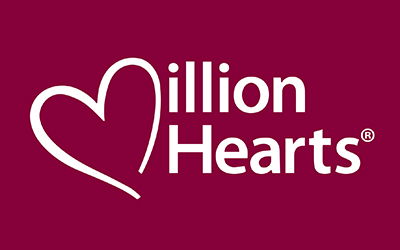
Year: Unknown | Competency/Strategic Skill: N/A | Priority Topic: N/A | Setting: Online | Format: On-Demand | Sponsor: East Tennessee State University
Overview:
This is a self-paced module.
At the end of this module, the learner will be familiar with resources available to clinicians from the Million Hearts website. These resources include protocols, medication adherence strategies, action guides, undiagnosed hypertension information, self-measured blood pressure monitoring, cardiac rehabilitation, particle pollution and heart disease information, physical activity promotion, tobacco cessation tools, health information technology guides, and data and reports.

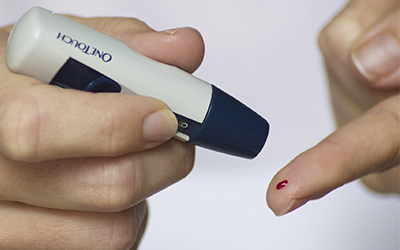
Year: Unknown | Competency/Strategic Skill: Program Planning | Priority Topic: N/A | Setting: Online | Format: On-Demand | Sponsor: East Tennessee State University
Overview:
This is a self-paced module.
This training will provide professionals information on different community-based programs focused on the prevention and management of diabetes. Participants will learn program content, how to register, cost, and other useful information to guide referral and usage.
By the end of the training participants will be able to:


Year: 2013 | Competency/Strategic Skill: Program Planning | Priority Topic: Other Infectious Diseases | Setting: Online | Format: On-Demand | Sponsor: East Tennessee State University
Overview:
This is a one-hour recording of a live lecture.
The Tennessee Department of Health, through a rapid interdisciplinary team, played a vital role in the identification and response to the multi-state fungal meningitis outbreak. The Commissioner’s perspectives on this dramatic, nation-wide outbreak, and his interpretations of the lessons learned are vitally important for every public health professional.


Year: 2014 | Competency/Strategic Skill: Program Planning | Priority Topic: Childhood Obesity | Setting: Online | Format: On-Demand |
Sponsor: Emory Unversity/Central Office
Overview:
This is a 90-minute recording of a live lecture.
The epidemic of obesity is profound in our state and across the nation. Obesity is one of the Georgia Department of Public Health’s top health priorities. This presentation will speak to obesity prevention strategies, best practices and related initiatives at both the national and state level. Data sources and programmatic resources will be presented at both levels as well.
A group whose numbers of obese are rapidly increasing is our youth. Georgia’s youth fitness and health data will be presented, and some of the state initiatives built around this alarming data will be promoted and discussed. Over the last few years, a combined effort between public and private organizations has led to some successful initiatives. The vital relationships that have been built across Georgia in pursuing and implementing so much of the obesity prevention work will be communicated, as well as Georgia’s long term strategic goals and objectives around childhood obesity.
Captain Heidi Michels Blanck, M.S., Ph.D., CDC’s Chief of the Obesity Prevention and Control Branch in the Division of Nutrition, Physical Activity, and Obesity will present the national nutrition, physical activity, and obesity perspective (www.cdc.gov/obesity). Emily Anne Vall, M.A., Ph.D., Obesity Project Manager, Georgia Department of Public Health will present on Georgia’s obesity initiatives.


Year: Unknown | Competency/Strategic Skill: Program Planning | Priority Topic: Childhood Obesity | Setting: Online | Format: On-Demand | Sponsor: East Tennessee State University
Overview:
This is a self-paced module expected to take three hours to complete.
This course provides an introduction to public health nutrition, discusses the methods of promoting public health nutrition, delineates the dangers and complications of obesity, and provides resources for public health nutrition education.


Year: 2014 | Competency/Strategic Skill: Program Planning | Priority Topic: N/A | Setting: Online | Format: On-Demand | Sponsor: Emory Unversity/Central Office
Overview:
This is a 90-minute recording of a live lecture.
Dr. Tim McAfee, Director of CDC’s Office of Smoking and Health presents the national perspective on tobacco control, including on the recently released Surgeon General’s Report and newly revised evidence-based best practices. Dr. Jean O’Connor, Director of Health Promotion and Disease Prevention in the Georgia Department of Public Health (DPH) discusses progress on Georgia’s continuing and emerging strategies to prevent tobacco use and help people in Georgia to quit, including data on the efficacy of and opportunities around expansion of Georgia’s Tobacco Quitline; progress toward tobacco-free schools; and, tools and resources for tobacco-free colleges and universities.